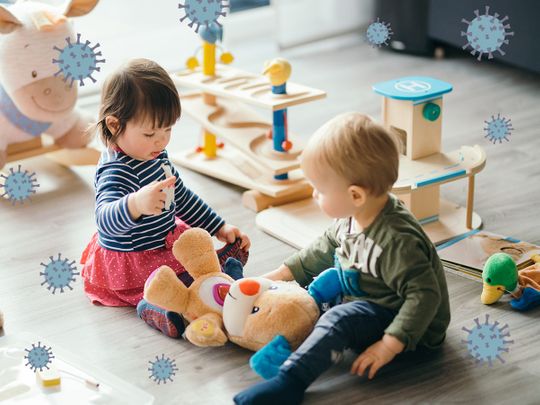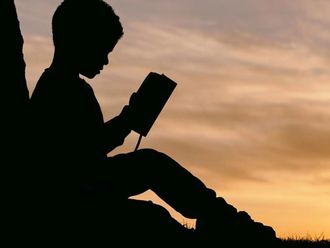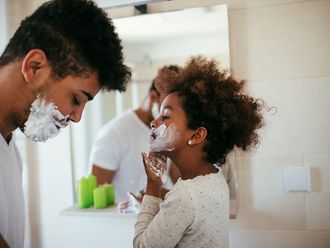
Scientists have been baffled by this new coronavirus, now known as severe acute respiratory syndrome coronavirus 2 (SARS-CoV-2), which seems to defy the expected pattern of viral contagion. With any virus outbreak, it tends to be the very young and the very old - who generally have the most vulnerable immune systems - that are worst affected. However, a paper released by Chinese doctors back in February this year analysed almost 45,000 cases and found that children and even babies appear to be more protected from the virus than people in any other age range.
“It is very surprising,” says Dr Frank Esper, paediatric infectious disease specialist at Cleveland Clinic Children’s, “not only because there are so few deaths in children with this coronavirus, but there have been very few infections in children found at all.”
This early research from China seems to be holding true and there is now a wealth of evidence that children generally experience milder symptoms when they are affected. "We continue to receive more and more data daily on this virus in children," says Dr Esper. "Large cross-section studies have now been performed in several countries detailing how the virus is impacting children. The studies have been largely consistent with one another."
Children under the age of 18 years are a significantly lower percentage of those diagnosed with the illness, says Dr Esper: "In a major recent study in the US of 149,082 (99.6%) cases, only under 2% were from children less than 18 years of age. Of these, a little over 5% ended up hospitalised, which is nearly half the adult rate. Lastly, there are very few deaths."
Although symptoms of Covid-19 are similar in children and adults, fewer infected children have symptoms. Fever and cough are the most common occurring in a little over half of children, but there are many who have no symptoms at all.
“There are many coronaviruses out there and four coronaviruses seem to spread in humans every year,” says Dr Esper. “We oftentimes find coronaviruses both in adults and children at fairly comparable numbers. Based on what we have seen so far, this coronavirus has a substantial predisposition for older people.”
However, this does not mean that we don't have to worry about our children catching the disease, warns Dr Esper: "Still it is important to know that children can get infected and can have severe infections, just at a lower rate than adults. Infants under one year of age and those children with serious underlying conditions (chronic lung, heart disease any children who are immune-suppressed) are at greater risk for severe disease."
Why might children be more protected?
This is a rapidly changing situation and the findings may be different as more evidence comes to light. "No studies have clearly explained why children are less affected," says Dr Esper. "Much of the testing to this point has been in those people with severe infection and older age groups. We are likely under-appreciating how many children are infected during this pandemic. It is important for us to assume that children can be as vulnerable to infection as adults, even if their risk for severe disease is not as great."
However there are some schools of thought as to why children may be less susceptible to this new disease. “Right now there are only theories,” emphasises Dr Esper. “One thought is smoking could be a big factor in getting infected and gravely sick with this coronavirus. Obviously smoking occurs more often in adults and the older you are the longer you may have smoked, putting you at higher risk. Another theory is pollution. Older individuals have lived longer breathing in pollution which may put their lungs at risk for this coronavirus.”
Increasingly, much of the belief for the difference between children and adults is centered on the differences in the immune response to the virus. "Specifically on the hyper-inflammatory response caused by this virus that occurs much more often in adults," says Dr Esper. This complication of the disease, known as a 'cytokine storm', is an overreaction of the body's immune system that can cause hyperinflammation in the lungs, which can seriously harm and even kill the patient, but for some reason happens far less often in young children.
Other experts suggest that children may just be exhibiting milder symptoms, as they often do with regular seasonal flu, and so may not be counted in assessment of Covid-19 figures, while some postulate that children may benefit from a certain amount of ‘umbrella immunity’ from frequent exposure to multiple forms of coronaviruses in daycare and school settings. It has also been suggested that children's lungs may contain fewer of the ACE2 receptors that the virus uses to infect cells.
What does this mean for how we safeguard our children against Covid-19?
While the findings so far are certainly comforting for parents to some extent, there are still many unknowns. “I was reassured when I saw that few children were getting sick. However, just because children seem more resilient against infection or severe illness doesn’t mean it is zero,” says Cleveland Clinic Children’s paediatric infectious disease specialist Dr Frank Esper. "Also, this virus may mutate again and could become more likely to infect children."
As play areas, summer camps and children's entertainment venues reopen in Dubai, it is important that children and parents follow the venues' safety protocols. As well as socially distancing as much as possible, and frequent handwashing, Dr Esper recommends that children above the age of two years who can tolerate a face mask should wear one if possible: "Kids are much more likely to be asymptomatic carriers and therefore may allow for more transmission since it is difficult to tell that they have the infection. In general, [the medical community] feels that children should be wearing face masks just like adults. We believe that children are as much at risk for acquiring the infection as well as spreading the infection as adults.”
How the virus affects pregnant women and newborns
It is now widely believed that this coronavirus cannot be passed from pregnant mother to unborn baby, or at least that the risk of such vertical transmission is extremely low, says Dr Esper. "The virus has not been detected in the cord blood, amniotic fluid, or placenta of mothers who were infected with the virus before or at the time of delivery. While the virus has been found in the blood of infected people, the amount of virus in the blood is low and the time it stays in the blood is short. Therefore, it seems unlikely the virus will make it to and through the placenta to cause fetal infection."
Although newborns have been found infected with the virus within days of birth, their infection is felt to be due to postnatal contact with infected parents or caregivers. Also, breast milk does not appear to be a source for infection and no virus has been detected in breast milk, says Dr Esper: "However, given the intimacy of breast feeding, transmission could occur through close contact during breastfeeding."
Precautionary measures you can take
For the time being, experts everywhere recommend that the standard safeguarding practices against infectious disease – namely, frequent handwashing – be employed to keep your family as safe as possible. “The best protection against this virus , along with all other viruses, is good hand washing,” says Dr Esper. “Clean your hands by washing them with soap and water for at least 20 seconds or using an alcohol-based hand sanitizer that contains 60%–95% alcohol immediately after coughing, sneezing, or blowing your nose. Soap and water should be used if hands are visibly dirty. Cover your mouth and nose with a tissue or your sleeve (not your hands) when coughing or sneezing. Stay home if you are sick.”
Find out whether your child should wear a face mask to protect against coronavirus and how to wear face masks so they actually work (instead of making things worse) here.
Read more:








